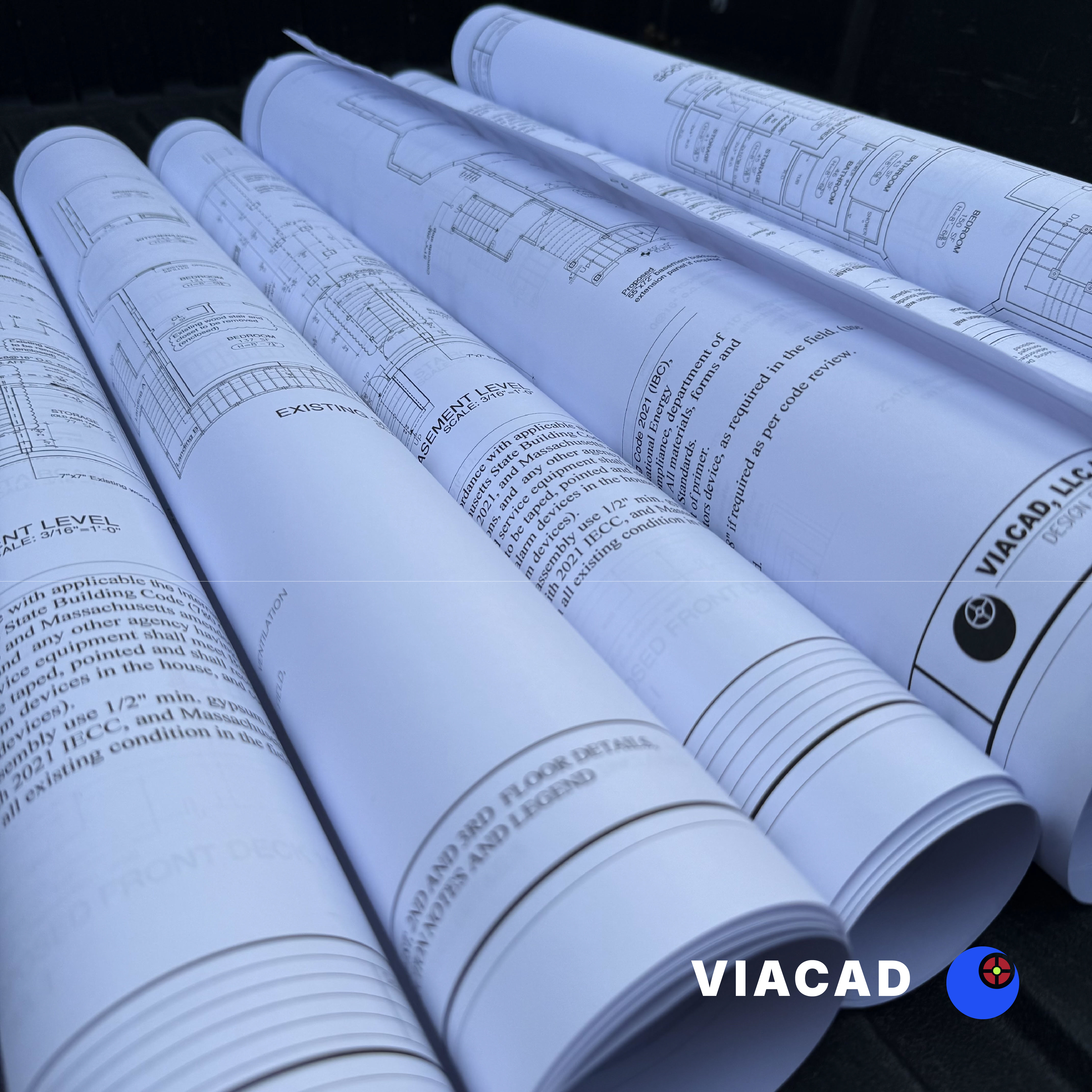
NOTE: VIACAD, LLC specializes in developing and producing detailed building plans (construction blueprints) for both residential and commercial projects across Massachusetts with more than 18 years of experience in design & construction producing professional permit-ready drawings for homeowners, builders, developers, and businesses.
Managing seasonal heat gain and loss in Massachusetts is essential for homeowners who want to maintain comfort throughout the year while minimizing energy bills. The region experiences significant temperature fluctuations between cold winters and warm summers, making efficient heating and cooling strategies critical. By understanding how to manage seasonal heat gain and loss in Massachusetts, residents can improve their home's energy efficiency, reduce heating costs, and enjoy better indoor air quality.
NOTE: Information provided here is for educational purposes only.
Homes in Massachusetts face unique challenges due to the region's climate, which includes cold snaps during winter and warm weather in summer. Heat loss is a major concern during the heating season when cold air infiltrates the house, causing the heating system to work harder. Conversely, during the cooling season, excessive heat gain from the sun and warm outside air can increase reliance on air conditioning.
Heat gain occurs when warm air and sunlight enter the home through windows, walls, roof, and doors, raising indoor temperatures. Heat loss happens when conditioned air escapes through small gaps and air leaks, letting cold air inside. Windows are another major source of heat loss in Massachusetts homes. Both heat gain and heat loss contribute to higher energy consumption and increased heating and cooling costs.
One of the most effective ways to minimize energy waste and manage seasonal heat gain and loss in Massachusetts is to seal air leaks and improve insulation. Many homeowners overlook small gaps around windows, doors, ductwork, and attic spaces, which can significantly reduce the home's efficiency. Air leaks are one of the most common sources of energy loss in Massachusetts homes.
Air sealing stops drafts and prevents cold air from entering during winter and warm air during summer. Proper insulation in walls, ceilings, and attics helps maintain a consistent indoor temperature by reducing heat transfer. Sealing and insulating ductwork can improve heating and cooling efficiency by up to 20%. Insulated windows and doors also play a crucial role in limiting heat gain in summer and heat loss in winter.

Efficient operation of heating and cooling systems is vital for managing seasonal temperature changes. Upgrading to a heat pump or a modern HVAC system can provide both heating and cooling efficiently, reducing wear on the furnace and air conditioning units. Monitoring outdoor temperature trends over consecutive days helps determine when to switch HVAC systems, ensuring optimal performance and energy savings.
Regular HVAC system service and maintenance ensure that the system runs efficiently and prolongs its life. Ductwork should be inspected and sealed to improve airflow and minimize energy loss. Proper maintenance of HVAC systems, including regular filter changes and annual professional servicing, is necessary for efficient operation. Installing a programmable thermostat allows homeowners to schedule temperature adjustments based on occupancy and time of day, helping save money by using less energy when the house is unoccupied.
A professional home energy assessment is a valuable step for Massachusetts homeowners looking to manage seasonal heat gain and loss effectively. This assessment identifies areas where energy waste occurs, such as unsealed air leaks, inadequate insulation, or inefficient appliances.
Local programs like Mass Save offer affordable home energy assessments with generous rebates for improvements that enhance efficiency. These improvements can significantly reduce heating costs and cooling expenses while improving indoor air quality and comfort.
Many surrounding Massachusetts communities, including the Greater Boston area, offer programs that encourage energy efficiency upgrades. Through Mass Save and other initiatives, homeowners can access financial incentives to replace outdated heating systems, install insulation, or upgrade windows and doors.
By taking advantage of these rebates, residents can make affordable improvements that minimize energy consumption and stop costly repairs caused by inefficient equipment working harder than necessary. These programs help homeowners save money while contributing to environmental sustainability.
To effectively manage seasonal heat gain and loss in Massachusetts, homeowners should consider several practical steps:
By implementing these strategies, homeowners can enjoy a more comfortable house year-round, save money on energy bills, and reduce their environmental footprint.
Understanding how to manage seasonal heat gain and loss in Massachusetts is key to maintaining a comfortable and energy-efficient home. From air sealing and insulation to optimizing heating and cooling systems, there are many affordable and practical ways to reduce energy waste and lower heating costs. Leveraging home energy assessments and taking advantage of generous rebates through programs like Mass Save can help homeowners in Massachusetts and the surrounding communities make smart improvements. With these steps, managing seasonal temperature changes becomes easier, saving money and enhancing the overall quality of life.


Currently accepting projects in Massachusetts.